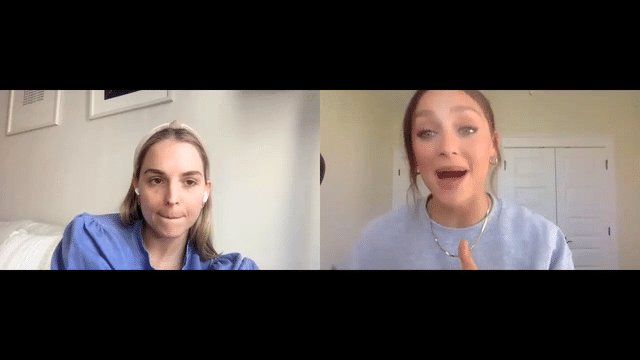How To Stop Counting Your Macros (and why!)

If you are giving over 50% of your thoughts towards your food, weighing, counting, and calculating every bite, are you controlling your food or is your food controlling you?
Ahhh, macronutrients. You may have heard about these if you have been in the wellness space long enough. You may have even been tracking them for the last decade!
Sam and I wanted to take a moment to elaborate on the what and why behind macro counting, where it goes wrong, and how you can heal from that food obsession. We just finished a whole podcast on this! You can listen here:

First, what are macros?
Macros, or macronutrients are categorized as protein, carbs, fats. Every bite of food you take is some distribution of these three groups. Each macronutrient is metabolized differently in the body, which is why some people demonize carbs or fats and only eat protein, or the other way around. It is a new way to give yourself food rules with some science behind them.

Why do we count them in the first place?
Most people start counting their macros with good intentions, they gain a ton of nutrition "education":
Counting calories and macros can help you see what is in the foods you are consuming. Every body metabolizes these macronutrients differently. The Standard American Diet is filled with a majority of carbohydrates, low quality fats, and processed proteins.
So you can see a difference in how you feel and function by changing the distribution of your macros, even if you don't change your calories.
(HINT: YOU DON'T NEED TO BE COUNTING EVERY MORSEL OF FOOD IN AN APP TO DO THIS)
Here is a chart showing which foods are made of proteins, carbs, and fats. (this is from the KYPO Program!)

Next, people track their macros for security, it allows you to have more external validation about your food choices, it gives you this farce of control. I use the word "farce" because you feel like you are controlling your food but when you are giving over 50% of your thoughts towards your food, weighing, counting, and calculating every bite, are you controlling your food or is your food controlling you?
Diet culture has convinced us that our bodies hunger and fullness signals, it’s energy homeostasis mechanisms, it’s ability to take the macronutrients you've given it and utilize it for energy, storage it for later usage, break down and convert it to different substances based it’s needs, can’t be trusted.
Here's the hard truth, it's not even that accurate.
Tracking your calories is not as accurate as you think. My Fitness Pal can have a standard deviation of about 800 calories per day when you add in human error in "eyeballing and measuring."
The FDA allows inaccuracies up to 20% for all food packaging labels. (!!!)
Even in the food you are making in your home, for example, cooking your steak (even without adding butter or oil) can increase calorie absorption by 23%. Baking a potato will increase calories absorbed by 91% (and I doubt you are consuming these foods raw!
How to tell if your tracking has gone too far:
Even if your relationship to tracking macros was positive, this was never supposed to be a long term health implementation.
A saying I’ve used with clients - It is a tool or is it a rule? Tools increases your ability to care for yourself in all determinants of health. A rule creates deprivation, restriction, feelings of shame and guilt, emotional backlash, keeps you stuck in harmful cycles. It is incredibly difficult to keep a macro tracker in the tool column and keep it out of the rule column.
-
You feel obsessive with food.
-
You think about food more than 15% of your day.
-
You stop tracking
-
You say no to social events because you don't know if it will fit your macros.
-
You see food as numbers, and can calculate each meal in your head.
-
You opt for more processed foods/ less nutrient dense foods because these can have lower carbs/calories/fat.
-
You feel obligated to eat everything on your plate regardless of your hunger because you already logged it
How to stop counting your macros:
Depending on how long you’ve counted macros, the idea of quitting cold turkey can be incredibly distressing.
For some, letting go of that white knuckle grip can feel like FREEDOM, but for others it can feel like chaos.
It can be incredibly beneficial to work with health professionals (LIKE US!) to walk you through this season, overcome these fears, and find the light at the end of the tunnel.
1. Don't go cold turkey.
Just like any other life change, start where you are. Reduce constant tracking by just one meal a day, or one day a week, then increase from there. This can allow you to add back in the foods that were not so easily trackable like those found in beautiful recipes, restaurants, or at a friends home.
2. Pay attention to what you actually LEARNED from tracking: can you start to prioritize protein, carbs, and fats at each meal?
If you have tracked for long enough, I hope you have paid attention to what a balanced meal looks like. Can you start experimenting with what your BALANCE actually looks like in real life, not from an app?
3. Slowing down when eating: Learn to listen to your body.

This is called your Interoceptive Awareness, the awareness of inner body sensations. You will learn to feel what healthy hunger and fullness feels like. The calorie counter that you have inside of your body is incredibly accurate!!!
But it demands that you slow down and listen.
It takes 20-30 minutes for the hormones in your stomach to signal to your brain that you are full.
Most Americans finish their meals in 6-7 minutes. Meaning we NEVER listen to our body.
This communication can take a while to rebuild. It's worth it, and so are you.
BENEFITS: What are you GAINING from not tracking?
-
Less stress - THIS IS HUGE FOR HEALTH, something we often disregard when being our “healthiest.” We will see an increase in our GI health - IBS, microbiome, mental health, endocrine health - a body in constant state of stress is not a healthy body. When the WAY you are eating is adding stress, you are already at a digestive disadvantage.
-
Ability to look at food for it's HEALTH benefits, rather than how it is going to make you gain or lose weight. There is a whole new way of looking at food when it is no longer just numbers.
-
More social connection, better relationships, flexibility, ability to travel without stress/prep! The people around you will acknowledge that you are actually PRESENT, not calculating what you are or are not allowed to eat.
-
BRAIN SPACE!!! What could you be thinking about, dreaming about, doing, if tracking macros and prepping macro appropriate meals didn’t take up so much of your daily thoughts.
In someone without any sort of disordered eating, thoughts about food take up about 15% of our overall thoughts throughout the day. Compare that to your own brain? How often are you thinking about food, tracking, worrying about what to eat on a menu? What would it be like to reclaim some of those thoughts?
Does this resonate with you? Are you seeking this type of food freedom and release from the control of counting every macro? Work with us, let's build this together.

